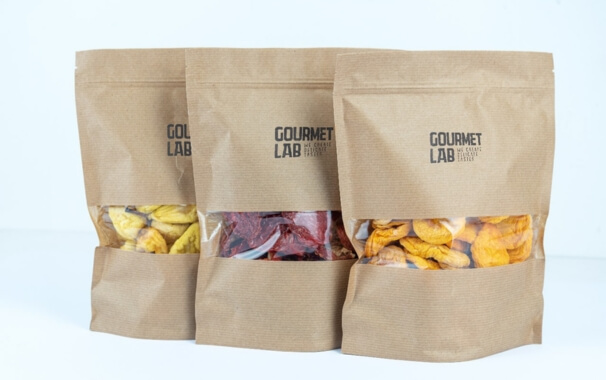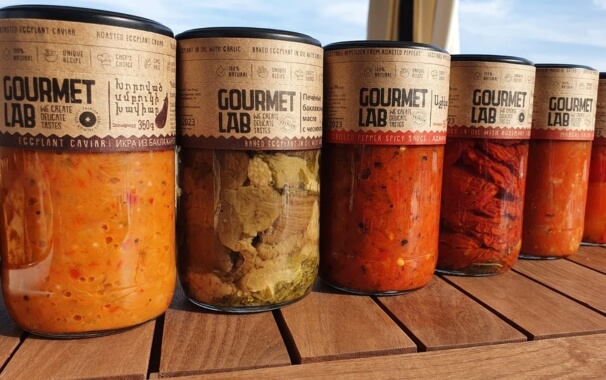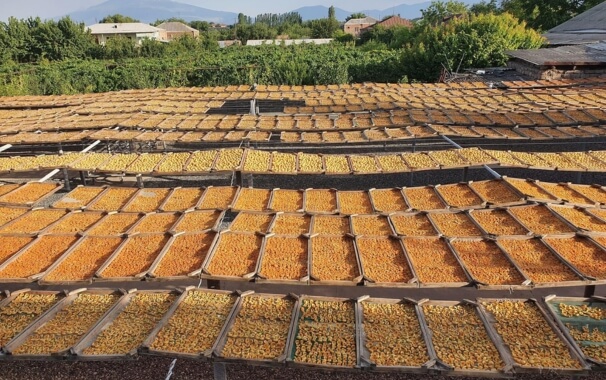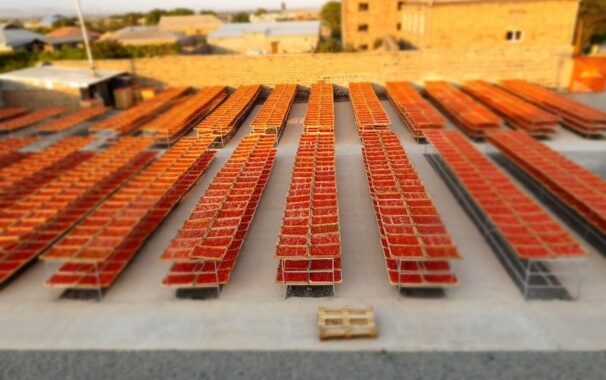My Way Home
15.10.2024
Repat Story
Gourmet Lab: A New Signature Trend in the Armenian Market
-webp(85)-o(jpg).webp?token=0eacc99bb54c218ea75262a4eac9d166)
Bringing Know-How from Russia to Armenia
A few years ago, well before healthy lifestyles, good nutrition, and sugar-free snacks became trendy, I was at a co-working space when my table neighbor offered me some sugar-free dried fruits. I discovered they were made by a young man named Artem, sitting at another desk nearby. As a big fan of healthy eating, I had tried plenty of sugar-free dried fruits since then, but these stood out in my memory.

Fast forward to today: I had the chance to meet that same Artem – full name, Artem Tatevosyan – for an interview. Yes, he’s still making those delicious dried fruits – and much more.
Artem was born in Armenia but spent most of his life in Moscow. After nearly two decades, he returned to Armenia with his family, bringing valuable experience from his time in Russia, where he had worked in agricultural processing and production.
“I tried to apply here what I had learned there,” Artem shares. “We started from scratch in 2015 with dried fruits and then built a large factory in the village of Bambakashat in the Ararat region. From there, we expanded into frozen and baked vegetables, as well as premium canned products. We offer traditional Armenian products like roasted eggplant caviar and adjika, along with pesto sauce and dried tomatoes in oil. Our Gourmet Lab now creates products that were hardly or not at all produced in Armenia before.”
Expanding Armenia’s Export Market
Gourmet Lab is helping to expand Armenia’s export market, with 95% of its products currently going to Russia. The company processes and exports 1,500 to 2,000 tons of local produce annually.
But Artem isn’t stopping there – he’s working hard to diversify the business, introducing new products to open up exports to other countries.
“We’re always looking for partners, and it would be great if someone from the diaspora could help us with this. Without partners and distributors, exporting is nearly impossible. And to make production efficient, you need exports. That’s why strong government programs, working hand in hand with businesses, are crucial for transforming our export capacity,” says Artem.
Standardizing and Diversifying Are Key
The cornerstone of Gourmet Lab’s strategy is standardization and diversification. Every product goes through rigorous quality control to ensure it is competitive on the export market. Gourmet Lab products stand side by side with the best on the Russian export market, both in quality and appearance. In Armenia, they hold a special place, introducing new items to the market and replacing imported products with local alternatives.

When it comes to Armenian consumers, Artem says they are curious and happy with what Gourmet Lab has to offer. Sales keep growing each month, and feedback has been very positive.
However, he acknowledges that the Armenian market is relatively small, making it challenging to operate when production costs are high and returns are low. Still, he views this as a challenge rather than a complaint. Gourmet Lab aims to diversify the local market, with hopes that their products will become more widely available.
Gourmet Lab's Pride
“We’re very meticulous about what we do, and we put a lot of effort into standardizing each product. Our team is great, and our specialists are the best. One product I take particular pride in is our additive-free dried apricots. In Armenia, 95% of dried fruits are treated with sulfur dioxide. It took us two years, but we developed a method for drying apricots without any additives. The result is a fantastic product that retains all its natural qualities. In the winter and spring seasons, it’s an excellent remedy for all kinds of ailments,” says Artem.

Why Agriculture is Key to Armenia’s Security
Artem believes that Armenia cannot thrive without agriculture and exports. While agriculture does not contribute much to the budget, it connects people to the land and keeps the country grounded. The thousands of people working in this sector, he says, are the backbone of Armenia, crucial to its security and future, with exports closely tied to that.
“Starting a business in Armenia is fairly straightforward,” Artem explains. “The state provides what’s needed for growth. Sure, there’s bureaucracy, but if you’re sincere, people help. We didn’t face any major hurdles. In just six months, we built a 1,500-square-meter production facility, set up the necessary infrastructure, and received ownership certificates. This was all during the year of COVID and war.”

Gourmet Lab now employs up to 55 people from the village of Bambakashat during peak seasons. The company also offers tours of the production facility, tastings, and even hosts tourist groups.
Armenia Gives Back
As his company has grown, Artem has experienced many personal changes. "My quality of life has greatly improved here. You feel valued, and everything you do feels purposeful. Armenia gives you so much energy. I always say, if you love it sincerely and don’t treat it like a consumer, it will repay you tenfold. I believe that if you’re successful, you should give back to Armenia; otherwise, in my eyes, you’re not worth much. One of my missions is to support others who want to make a difference here. Armenia is inspiring and makes life more fulfilling. But I do need to get away every couple of months to avoid burnout," he adds with a laugh. "We’re not waiting for miracles here; we're actively creating them ourselves."
By Nare Bejanyan
-
Repat Story
-webp(85)-o(jpg).webp?token=acf3385fd392b9017b0b4eeec09bda38) 28.10.2024Happy Back Home: Opera Singer Suren Mkyan's Repatriation to Armenia
28.10.2024Happy Back Home: Opera Singer Suren Mkyan's Repatriation to Armenia

-webp(85)-o(jpg).webp?token=1b657244ba7067d9e8e31e9012e4f0e3)
-webp(85)-o(jpg).webp?token=660f4d541ccd8aef0cd922bfd09dd6bc)
-webp(85)-o(jpg).webp?token=3810c852414e98bd6dea5d3a76cf94b0)